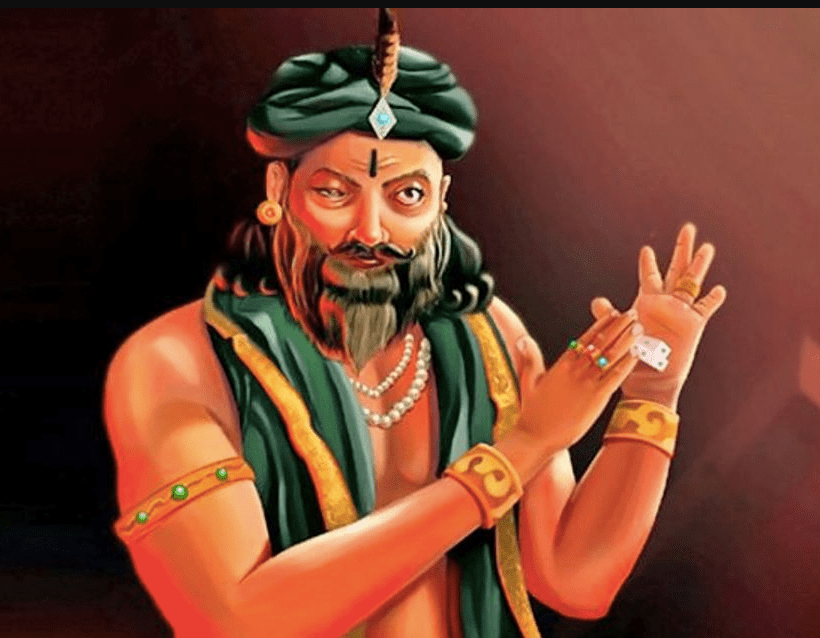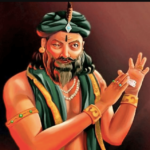THE LEGEND OF SHAKUNI: THE OBEDIENT SON

“Myths are early science, the result of men’s first trying to explain what they saw around them.” (Edith Hamilton)
Almost every mythology, from East African to Aztec, Chinese, Nordic, Greek, Roman, Celtic and Indian mythology harbours a creation myth followed by the establishment of separate domains for Gods and humans. Mythology also consists of common, community-shared stories and myths about the warring gods, the capricious gods, the jealous and treacherous ones and the benevolent ones and the most important myth of all- the good versus the evil. The amusing factor is that ever since the creation of myths, people have known that these are not entirely true, yet they believe in them- more or less. In fact, Ansel Adams claims that ,
“Myths and creeds are heroic struggles to comprehend the truth in the world.”
The question, however is, why were the myths created? What led people to create myths and legends?
What I like most about mythological stories is the psychological and rational perspective involved in their creation. Mythological legends, especially Indian mythology is all about imparting moral and ethical value among people. Every character is delineated from the standpoint of didactic cause and therefore characters- good or evil- have grey areas. Instead of segregating them into dichotomous black or white, watertight compartments, grey shades of their personality are often highlighted. However, when their evil deeds outnumber the good ones, the balance is tilted against them and thereby they become the archetypal representatives of evil in society.
It was while reading Devdutt Patnaik’s Jaya, an illustrative re-interpretation of Mahabharata, I got interested in exploring the grey areas of Shakuni’s character. We all know Shakuni as one of the villains of Mahabharata who colluded with his nephew, Duryodhana; cheated in the game of dice, helped Duryodhana dethrone Yudhishthir, humiliate Draupadi and exile Pandavas.
Delving a little deeper, mythology reveals an interesting story behind Shakuni’s menacing acts. His actions were motivated by the revenge he sought in the name of his family that was tortured by Bhishm, the scion of the Kuru empire and the guardian of Hastinapur.
It is said that King Subala of Gandhar was blessed with a daughter. Astrologers predicted that the girl will have a tragic first marriage which will end with the death of her husband and her becoming a widow. Therefore, when Gandhari came of age, she was married off to a goat which was killed soon after the ceremony. Thus, Gandhari became a widow. The entire affair was hush-hush and nobody knew about it except her immediate family.
The story ahead has two versions- one claims that as a war strategy Bhishm laid a siege at Gandhar. King Subala, left with meagre resources to feed his family, asked all his children to give up on their share and fed only his youngest and the most intelligent son, Shakuni so that he could survive and avenge the death of his family. Later, Bhishm married Gandhari to Dhritrashtra and allowed Shakuni to live in Hastinapur.
According to the second version, once Kauravas and Pandavas, when they were children, were playing together. Duryodhana teased Pandavas and called them ‘sons of a whore’. Not to be left behind, Bhim called Duryodhana ‘son of a widow’. Duryodhana went to Bhishm and sought explanation for the same. Bhishm was taken aback and made enquiries. When he came to know of Gandhari’s first marriage to a goat, he imprisoned her entire family in a dungeon for marrying off a widow to the heir of Hastinapur throne.
Everyday only a handful of rice were given to each member of the family which was not enough to survive. King Subala, took everyone’s share and fed Shakuni. One by one, all his sons died and when he himself was about to die, he instructed Shakuni to make dice out of his fingers (some versions claim that the dice were crafted out of Subala’s spine). The dice will always obey Shakuni and he would never lose a game. He also sought a pledge from Shakuni to avenge the death of his family by destroying the Kuru dynasty. Shakuni, like an obedient son, did what he was told and yet we know him as a villain.















